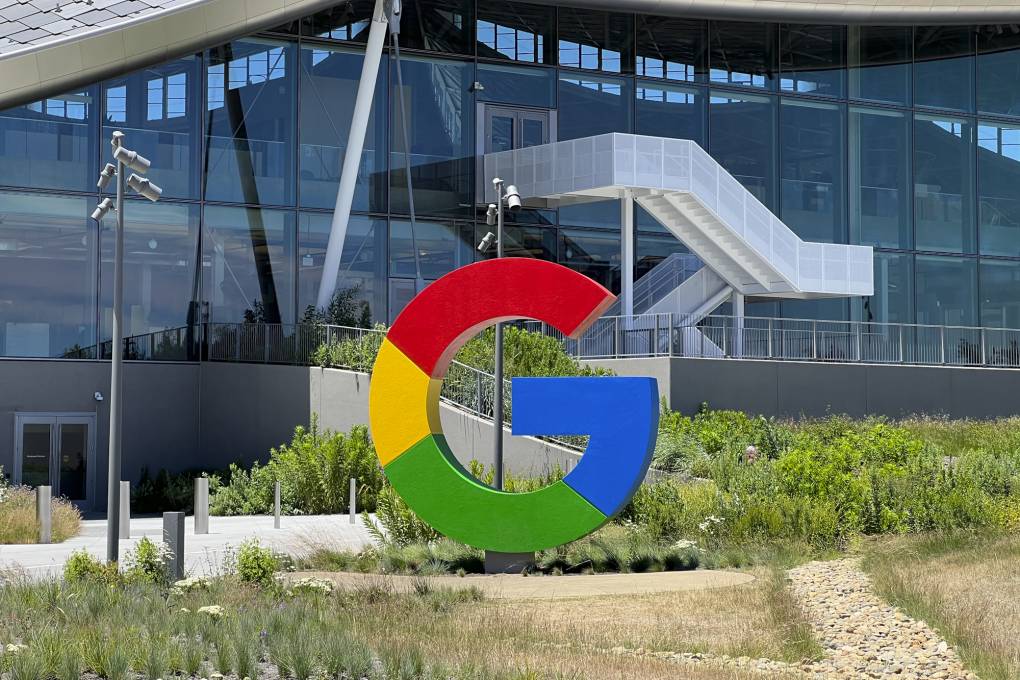California
Newsom Strikes Deal with Google and OpenAI to Support California Newsrooms | KQED

But Glazer was less conciliatory. “This agreement, unfortunately, seriously undercuts our work toward a long term solution to rescue independent journalism,” he wrote in a statement. “There is a stark absence in this announcement of any support for journalism from Meta and Amazon. These platforms have captured the intimate data from Californians without paying for it. Their use of that data in advertising is the harm to news outlets that this agreement should mitigate.”
The “News Transformation Fund” established by the deal will be administered by the UC Berkeley School of Journalism, which would distribute funding to California-based state and local news organizations, particularly those serving “news deserts” and underserved and underrepresented communities. “The University and specifically the UC Berkeley School of Journalism stand ready to support this endeavor,” UC President Michael V. Drake said.
In the first year, Google will deposit $15 million a year into the new journalism fund, $5 million into the AI accelerator and $10 million toward existing journalism grants.
In a statement, Kent Walker, president of global affairs and chief legal officer for Alphabet, the umbrella company that owns Google, wrote, “California lawmakers have worked with the tech and news sectors to develop a collaborative framework to accelerate AI innovation and support local and national businesses and nonprofit organizations.”
Google ran an aggressive lobbying campaign against both bills in Sacramento and even temporarily removed news links from its search engine in California in reaction to AB 886.
The company made similar threats in both Canada and Australia before coming to agreements to contribute to news organizations in both countries.
Meta followed through on threats to remove news links in both Australia and Canada in response to specific legislative actions in order to influence the terms of legislation. Meta did not respond to a request for comment.
The agreement has the support of the California News Publishers Association, which represents 700-plus member newsrooms. “This is a first step toward what we hope will become a comprehensive program to sustain local news in the long term, and we will push to see it grow in future years,” CEO Chuck Champion and Board Chair Julie Makinen wrote.
But the deal has critics, including Free Press Action Co-CEO Jessica J. Gonzàlez, who wrote: “We are disappointed in this outcome and this process. Good policy is made out in the open, where people can see and participate in the democratic process.” The group said the agreement fails to address the harms Silicon Valley has done to journalism in California, noting that “Since 2004, the state has lost 25 percent of its newspapers, total news circulation has plummeted more than 50 percent, and many ethnic media outlets and nonprofit newsrooms have struggled to survive.”
Work will begin immediately to set up the AI accelerator and the UC Berkeley-administered fund, with plans to go live in 2025.

California
California Highway Patrol warns against attempted ‘Amber Alert' scam

The California Highway Patrol is warning the public to beware of fraudsters posing as “AMBER Alert representatives” offering to “register” children.
“They ask for confidential info and to meet at your home,” the CHP said Saturday on social media. “This is not how the AMBER Alert system works.”
No registration is ever required, the CHP said.
AMBER — which stands for America’s Missing: Broadcast Emergency Response — is only activated by law enforcement agencies investigating reports of an abducted or missing child.
The alerts are intended to provide the public with immediate information about a child abduction.
The CHP said it is the only agency authorized to activate AMBER Alerts.
“Never provide personal information or answer calls from unknown or ‘possible scam’ numbers,” the highway patrol said.
If contacted by a scammer, the CHP said, report it to your local law enforcement agency immediately.
California
Opinion: California utilities have lofty climate goals. Too bad their customers are in the dark

Regardless of the presidential election results, the clean energy transition is still a major priority for the nation’s electric utilities. Perhaps nowhere in the world is the pressure more intense than in Southern California, where the demands on the power grid are high and many residents are well acquainted with the consequences of aging, unsuitable infrastructure.
Many electric utilities now consider sustainability crucial to their overall strategy. However, as evidenced by countless examples of conservatives being elected on anti-environmental platforms, the majority of consumers just aren’t thinking that much about clean energy.
For the past four years, my team at J.D. Power and I have been analyzing customer awareness of and support for utilities’ climate programs and goals in an annual Sustainability Index. Without fail, we found that very few customers have any awareness of their utilities’ clean energy goals. This year’s index found that just 22% of customers knew their utilities had such goals, a figure that was even lower in previous years.
I experienced one aspect of this phenomenon as a consumer when I went through the grueling process of learning about and applying for California and federal rebates for an energy-efficient heat pump system I installed in my home last year. Even though I wrote about that ordeal for The Times and heard from consumers who had similar experiences, I have yet to get any response from my utility. Heat pumps have been a cornerstone of clean energy transition efforts, but when it comes to installing and using them and understanding their benefits, utilities are leaving consumers on their own.
A deep dive into my combined electric and gas bills showed that my total expenses dropped 3% in 2024 compared with the same period in 2022, before I began installing the system. And because average unit electricity prices increased by more than 20% in the interim, my adjusted heating costs are down more than 23%. In addition, I now have the benefit of air conditioning during summer heat waves, which I did not have prior to the conversion.
But before I could even begin to understand the extent of these benefits, I had to download reams of data from Pacific Gas & Electric Co.’s data hub, build a spreadsheet to organize and chart my energy use and utility billing trends, and cross-reference everything with federal greenhouse gas equivalency calculations. Does anyone think an average consumer would go through all this?
The experience illustrated the chasm between the way utilities communicate about environmental responsibility and the way consumers live it. The fact is, if any utilities are ever going to meet their sustainability targets — many of which call for reaching net zero greenhouse gas emissions by 2030 — they are going to need their customers to change their behavior. But given that few customers are even aware of these priorities, and that most are far more concerned about affordability than they are about sustainability, there is a complete disconnect between utility and customer goals.
But these goals can be aligned if the companies explain and promote them clearly and convincingly. We’re living through a historic transformation that has the potential to reinvent heating and cooling, travel and more. Smart-grid technologies can put individual homeowners at the center of the energy storage and transmission system. None of that will happen without massive consumer buy-in.
Utilities should be launching bold outreach strategies, investing in customer education on how to save money (and pollution) by adopting new technologies, and making it easy for consumers to help them reach their environmental goals. But most utilities are instead wasting their time talking about lofty sustainability targets that lack the substance and support they need to become reality.
Electric utilities have a huge opportunity to help customers save money and improve their experience, increase their own revenue and meet their clean energy goals. To do so, they need to start understanding and communicating effectively with their customers.
Andrew Heath is the vice president of utilities intelligence at J.D. Power.
California
California’s new ‘Daylighting’ law forces change to Davis parking

-

 Health1 week ago
Health1 week agoNew Year life lessons from country star: 'Never forget where you came from'
-
/cdn.vox-cdn.com/uploads/chorus_asset/file/24982514/Quest_3_dock.jpg)
/cdn.vox-cdn.com/uploads/chorus_asset/file/24982514/Quest_3_dock.jpg) Technology1 week ago
Technology1 week agoMeta’s ‘software update issue’ has been breaking Quest headsets for weeks
-

 Business5 days ago
Business5 days agoThese are the top 7 issues facing the struggling restaurant industry in 2025
-

 Politics1 week ago
Politics1 week ago'Politics is bad for business.' Why Disney's Bob Iger is trying to avoid hot buttons
-

 Culture5 days ago
Culture5 days agoThe 25 worst losses in college football history, including Baylor’s 2024 entry at Colorado
-

 Sports4 days ago
Sports4 days agoThe top out-of-contract players available as free transfers: Kimmich, De Bruyne, Van Dijk…
-

 Politics3 days ago
Politics3 days agoNew Orleans attacker had 'remote detonator' for explosives in French Quarter, Biden says
-

 Politics3 days ago
Politics3 days agoCarter's judicial picks reshaped the federal bench across the country













